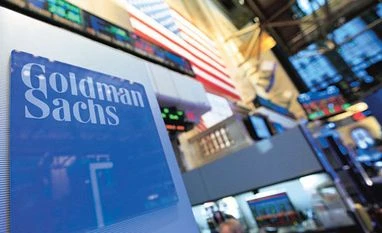Investors snapped up the $1.2 billion in bonds that, in turn, channeled proceeds to a cluster of airlines linked to Etihad Airways. Within months, bankers handling the sale were crisscrossing the Atlantic, collecting awards for their creativity.
Two years later, the deal went bust.
More From This Section
The brewing fight places another unwelcome spotlight on Goldman Sachs Group Inc.’s willingness to raise large pools of capital in unorthodox or risky deals. It also threatens to drag the Wall Street giant into another blowup over its ties to Windhorst, whose web of business dealings has drawn fresh scrutiny in recent weeks.
“There were a lot of strange characteristics,” Roger King, an analyst at research firm CreditSights, said of the bonds Goldman helped sell. “It was a bizarrely complicated deal. A hairy deal no matter who brought it.”
One question at the center of the airline fundraising in 2015 and 2016 is why Goldman agreed to fill the breach as another big bank, HSBC Holdings Plc, dropped out, according to the people with knowledge of the matter. Such a large financing probably couldn’t be completed without the help of a global bank.
Creditors including investment managers BlueBay Asset Management and Gramercy Funds Management have enlisted the private investigators to help them push for maximum recoveries from the busted bonds, the people said. Representatives for the two funds declined to comment
or identify whom they’ve enlisted.
Their effort contrasts with the typical reason that investors hire corporate spies. Usually, bondholders hire intelligence companies in less-developed countries to track down assets or follow the cash trail, said Robert Southey, founder of Southey Capital, a London-based broker. It’s relatively rare to get private investigators to look into deals that involve one of the world’s largest investment banks and a major airline group. One significant bondholder has already grown uncomfortable with the tactics, according to a person with knowledge of the situation.
Desperate times
Etihad faced a big problem in 2015. To expand from being a regional carrier into a global player, the company had bought stakes in several smaller airlines around the world. But some—like Air Berlin—kept bleeding cash. Windhorst, once the German airline’s largest shareholder, was looking to shore up its finances. Yet Air Berlin would have to pay dearly to tap global debt markets on its own.
Etihad’s executives and Windhorst sketched out a rough plan, with Anoa, a small brokerage, tasked to work out the details, the people said. Special-purpose vehicles linked to Etihad, called EA Partners, would sell bonds. The EA Partners vehicles would then slice up the proceeds and offer loans of various sizes to the fleet of smaller carriers. Members of the airline group would make periodic payments to EA Partners, which would distribute interest to bondholders.
Anoa was an affiliated company of Windhorst’s investment arm. The financier had been tapping into his connections to drum up business for Anoa with dreams of establishing it as a widely known boutique. The aspirations wouldn’t pan out, and Anoa would eventually shut down. But in a sign of how close Windhorst was to the firm, its former chief executive officer is now CEO of Windhorst’s own investment vehicle.
To read the full story, Subscribe Now at just Rs 249 a month
Already a subscriber? Log in
Subscribe To BS Premium
₹249
Renews automatically
₹1699₹1999
Opt for auto renewal and save Rs. 300 Renews automatically
₹1999
What you get on BS Premium?
-
Unlock 30+ premium stories daily hand-picked by our editors, across devices on browser and app.
-
Pick your 5 favourite companies, get a daily email with all news updates on them.
Full access to our intuitive epaper - clip, save, share articles from any device; newspaper archives from 2006.
Preferential invites to Business Standard events.
Curated newsletters on markets, personal finance, policy & politics, start-ups, technology, and more.
Need More Information - write to us at assist@bsmail.in
)